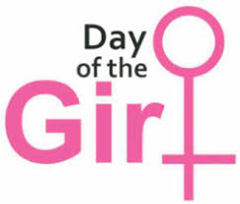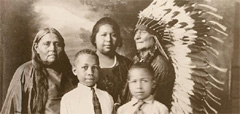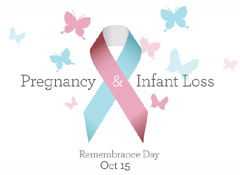Holiday Calendar for Jamaica in October

Jamaica is an island situated in the Caribbean which basks in a warm climate all year round, maxing out at 33 °C in the summer months. Jamaica holidays are so varied...  Help us
Help us
National traditions, public holidays and notable observances for 2025-2026 year
October 2025
Sunday 19 October - Heroes' Day in Jamaica (Celebrated on the third Monday in October)
November 2025
December 2025
Monday 8 December - CARICOM–Cuba Day (Caribbean Community)
Friday 26 December - Boxing day in Australia (also Anguilla, Antigua and Barbuda, Great Britain, New Zealand, Canada, Kiribati, Nauru, Botswana, Ghana, Jamaica)
January 2026
February 2026
March 2026
April 2026
May 2026
Wednesday 6 May - Teachers' Day in Jamaica (the first Wednesday in May)
Sunday 10 May - Mother’s Day (Anguilla, Antigua and Barbuda, Aruba, Australia, Austria, Bahamas, Bangladesh, Barbados, Belgium, Belize, Bermuda, Bhutan, Bonaire, Botswana, Brazil, Brunei, Canada, Cambodia, Cayman Islands, Central African Republic, Chad, Chile, China, Colombia, Congo, Dem. Rep., Congo, Rep., Cote d'Ivoire, Croatia, Cuba, Curaçao, Cyprus, Czech Republic, Denmark, Dominica, Ecuador, Equatorial Guinea, Estonia, Ethiopia, Faroe Islands, Fiji, Finland, Germany, Gabon, Gambia, Greenland, Ghana, Greece, Grenada, Guyana, Honduras, Hong Kong, Iceland, India, Italy, Jamaica, Japan, Kenya, Latvia, Liberia, Liechtenstein, Macau, Malaysia, Malta, Myanmar, Namibia, Netherlands, New Zealand, Pakistan, Papua New Guinea, Peru, Philippines, Puerto Rico, Saint Kitts and Nevis, Saint Lucia, Saint Vincent and the Grenadines, Samoa, Singapore, Sint Maarten, Slovakia, South Africa, Sri Lanka, Suriname, Switzerland, Taiwan, Tanzania, Tonga, Trinidad and Tobago, Turkey, Uganda, Ukraine, United States, Uruguay, Vietnam, Venezuela, Zambia, Zimbabwe)
July 2026
Saturday 25 July - National Baha'i Day in Jamaica (The Baha'i era was inaugurated in 1844 with the declaration of the Bab, the messenger of God who proclaimed the closing of the present era and promised the coming of one who would open the next era, fulfilled in the person of Bahaullah, the prophet for this age)
August 2026
Saturday 1 August - Emancipation Day in Barbados, Bermuda, Guyana, Trinidad and Tobago, Jamaica (Celebration of the Slavery Abolition Act 1833 which ended the slavery in the British Empire, generally celebrated as a part of Carnival, as the Caribbean Carnival takes place at this time)
Thursday 6 August - Jamaica Independence Day (celebrates the independence of Jamaica from the United Kingdom in 1962)
Monday 17 August - Birthday of Marcus Garvey (Rastafari. Marcus Garvey Day in Jamaica)
September 2026
Some jamaican traditions
Every country has Christmas traditions which are passed down through the ages and in Jamaica, it is no different. Within a Christmas week householders go through every ‘crevice and corner’, rooting out all the unnecessary possessions that have accumulated during the year. Some customs have connections with slavery and others have developed along the way, in keeping with the changing times.
Jamaica is an island full of folklore, magic, and spirituality, with a rich culture of traditions, customs, and rituals, many of them religious in origin (although by no means all).
Jamaican traditions and customs: decorated maracas Hand-clapping and percussion are an important part of Jamaican Revivalist ceremonies.
Jamaican culture and folklore is teeming with ghosts, spirits, and duppies.
Kumina is a Jamaican religious ceremony involving music, dance, and spirit possession, and is a way of celebrating and appeasing ancestors.
Obeah is a belief system that is officially outlawed, although nowadays it’s rare for anyone to be convicted for adhering to the practices.
Although many Jamaican death rituals are dying out nowadays, the ‘Nine Nights’ ritual (was traditionally practised to ensure the dead person’s ‘duppy’ did not come back to haunt the living) is still going strong – it’s an extended wake that lasts nine days and traditionally involves music, anecdotes, lots of food, and plenty of rum.
Jamaica is an island full of folklore, magic, and spirituality, with a rich culture of traditions, customs, and rituals, many of them religious in origin (although by no means all).
Jamaican traditions and customs: decorated maracas Hand-clapping and percussion are an important part of Jamaican Revivalist ceremonies.
Jamaican culture and folklore is teeming with ghosts, spirits, and duppies.
Kumina is a Jamaican religious ceremony involving music, dance, and spirit possession, and is a way of celebrating and appeasing ancestors.
Obeah is a belief system that is officially outlawed, although nowadays it’s rare for anyone to be convicted for adhering to the practices.
Although many Jamaican death rituals are dying out nowadays, the ‘Nine Nights’ ritual (was traditionally practised to ensure the dead person’s ‘duppy’ did not come back to haunt the living) is still going strong – it’s an extended wake that lasts nine days and traditionally involves music, anecdotes, lots of food, and plenty of rum.
International Day of Older Persons

On 14 December 1990, the United Nations General Assembly (by resolution 45/106) designated 1 October the International Day of Older Persons.
Th..→
|
|
International Music Day

The International Music Council (IMC) was created in 1949 as UNESCO’s advisory body on matters of music. It is based at UNESCO’s headquarters in..→
|
|
International School Library Month

October 1 marks the beginning of International School Library Month (ISLM), a month to celebrate and draw attention to school libraries. First s..→
|
|
List of commemorative months in October in Ohio

Ohio hepatitis C awareness month; German heritage month; Crime prevention month; Disability employment awareness month; Sudden Infant Death Synd..→
|
|
Ohio Forest Products Awareness Week

The state of Ohio has approximately 8.05 million acres under forest cover, which is 30.7% of Ohio’s land area. Nearly three-quarters of Ohio’s f..→
|
|
World Vegetarian Day and International Vegetarian Week

World Vegetarian Day is observed annually on October 1. It is the official date, however if necessary, individuals may schedule their event on a..→
|
|
International Day of Non-Violence

According to General Assembly resolution A/RES/61/271 of 15 June 2007, which established the commemoration, the International Day is an occasion..→
|
|
|
|
Ostomy Awareness Day (World Ostomy Day)

In 1993 Professor Dr. Gerhard Englert proposed the idea to organize World Ostomy Day.
The aim was to draw attention for people with a stoma and..→
|
|
World Animal Day

World Animal Day was observed on October 4th, the feast day of Francis of Assisi, the patron saint of animals. Started in Florence Italy in 1931..→
|
|
World Space Week

The General Assembly declares 4 to 10 October World Space Week to celebrate each year at the international level the contributions of space scie..→
|
|
World Teachers’ Day

UNESCO proclaimed 5 October to be World Teachers’ Day in 1994, celebrating the great step made for teachers on 5 October 1966, when a special in..→
|
|
German-American Day

In 1983, President Ronald Reagan proclaimed October 6 as German-American Day to celebrate and honor the 300th anniversary of German American imm..→
|
|
Nonviolence Week in Ohio

The idea of Ohio Violence Week was developed by the Mahoning Valley Sojourn to the Past, an organization that advocates for peace, tolerance and..→
|
|
World Architecture Day

World Architect Day is celebrated on the first Monday of every October, concurrently with the United Nations’ World Habitat Day, was set up by ..→
|
|
World Habitat Day

In 1985 the United Nations designated the first Monday of October every year as World Habitat Day (Resolution 40/202 of 17 December 1985). The i..→
|
|
Leif Erikson Day in Wisconsin

Leif Erikson was born in Iceland and raised in Greenland. Norse sagas written 300 years after his death describe his explorations, around 1000 C..→
|
|
|
|
World Mental Health Day

World Mental Health Day is observed on 10 October every year, with the overall objective of raising awareness of mental health issues around the..→
|
|
General Pulaski Memorial Day in Ohio

Casimir Pulaski (March 6, 1745 – October 11, 1779) was a Polish noblemanb, soldier and military commander who has been called with his fellow Hu..→
|
|
International Day of the Girl Child

On December 19, 2011, the United Nations General Assembly adopted Resolution 66/170 to declare 11 October as the International Day of the Girl C..→
|
|
World Hospice and Palliative Care Day

World Hospice and Palliative Care Day is a unified day of action to celebrate and support hospice and palliative care around the world. Voices f..→
|
|
Christopher Columbus Day in Wisconsin

Christopher Columbus was an Italian explorer, navigator, colonizer and citizen of the Republic of Genoa. Under the auspices of the Catholic Mona..→
|
|
World Arthritis Day

World Arthritis Day (WAD), established in 1996 by Arthritis and Rheumatism International (ARI) is a global initiative bringing people together t..→
|
|
American Indian Heritage Day in Alabama

STATE OF ALABAMA. PROCLAMATION BY THE GOVERNOR:
"WHEREAS, many of our state citizens are of Native American Indian heritage, and their Tra..→
|
|
Farmers’ Day in Florida

Farmer’s Day has history dating back to the 1800’s. There are some cities and towns across the United States that have their own versions of Far..→
|
|
Fraternal Day in Alabama

Fraternal Day was originally celebrated in Alabama on the second Thursday of October beginning in 1915.
In 1915, The Fraternal Monitor, publish..→
|
|
Indigenous People’s Day in Berkeley, California

The idea of replacing Columbus Day with a day celebrating the indigenous people of North America first arose in 1977 from the International Conf..→
|
|
International Day for Disaster Reduction

By resolution 44/236 (22 December 1989), the General Assembly designated the second Wednesday of October International Day for Natural Disaster ..→
|
|
Metastatic Breast Cancer Awareness Day in Ohio

Metastatic breast cancer is also called stage IV or advanced breast cancer.
At University Hospitals Seidman Cancer Center, offer one of the onl..→
|
|
Native American Day in South Dakota

In 1989, the South Dakota legislature unanimously passed legislation proposed by Governor George S. Mickelson to proclaim 1990 as the "Year..→
|
|
Virgin Islands-Puerto Rico Friendship Day

It is easy to be insular in thinking when geographic factors facilitate it but it is good for us in the Virgin Islands to retain some regard for..→
|
|
World Standards Day

Each year on 14 October, the members of the International Electrotechnical Commission (IEC), International Organization for Standardization (ISO..→
|
|
Global Handwashing Day

Global Handwashing Day is an annual global advocacy day dedicated to increasing awareness and understanding about the importance of handwashing ..→
|
|
International Day of Rural Women

The first International Day of Rural Women was observed on 15 October 2008. This new international day, established by the General Assembly in i..→
|
|
Pregnancy and Infant Loss Remembrance Day in Ohio

Approximately 1 in 4 pregnancies worldwide end in miscarriage. According to the World Health Organization, 4.5 million stillbirths occur each ye..→
|
|
White Cane Safety Day (White Cane Day)

White Cane Safety Day is a national observance in the United States, celebrated on Oct. 15 of each year since 1964. Then President Lyndon B. Joh..→
|
|
Dravet Syndrome Awareness Day in Ohio

Dravet syndrome, also known as Severe Myoclonic Epilepsy of Infancy (SMEI), is a rare and catastrophic form of intractable epilepsy that begins ..→
|
|
International Credit Union Day

International Credit Union Day (ICU Day) has been celebrated on the third Thursday of October since 1948. 2018 marks the 70th anniversary of its..→
|
|
National Boss’s Day (or Bosses Day)

Boss’s Day, also known as Bosses Day or National Boss Day, is generally observed on or around October 16 in the United States. (If the holiday f..→
|
|
World Anesthesia Day

World Anesthesia Day commemorates the first successful demonstration of ether anesthesia on October 16, 1846. American dentist William Morton , ..→
|
|
International Day for the Eradication of Poverty

We are living in the world, where every fourth person tries to survive for 1 US dollar a day. Even in the most technologically developed country..→
|
|
Day of Struggle Against Breast Cancer

On October 19 is celebrated worldwide on the Day of Struggle Against Breast Cancer. The best tool for this struggle is early detection, therefor..→
|
|
International Chefs Day

Each year on the 20th of October we celebrate the International Chefs Day.
The American Culinary Federation, Inc. (ACF), a professional, organi..→
|
|
International Day of the Air Traffic Controller

The International Day of the Air Traffic Controller, celebrated on 20 October each year, not only marks the anniversary of the International Fed..→
|
|
World Osteoporosis Day

The concept for World Osteoporosis Day started with a campaign launched by the United Kingdom’s National Osteoporosis Society and supported by E..→
|
|
World Statistics Day

World Statistics Day is observed On 20 October every 5 years since 2010 when it was celebrated for the first time, as decided in the UN General ..→
|
|
International Stuttering Awareness Day

Since 1998, every year on October 22 we celebrate International Stuttering Awareness Day (ISAD).
The self-help groups and the national associat..→
|
|
U.S.S. Hocking day in Ohio

USS Hocking (APA-121) was a Haskell-class attack transport of the United States Navy (Displacement: 6,873 tons; Length: 455 ft (139 m); Beam: 62..→
|
|
Disarmament Week

The annual observance of Disarmament Week, which begins on the anniversary of the founding of the United Nations, was called for in the Final Do..→
|
|
United Nations Day (UN Day)

UN Day marks the anniversary of the entry into force in 1945 of the UN Charter. With the ratification of this founding document by the majority ..→
|
|
World Development Information Day

The General Assembly in 1972 instituted World Development Information Day to draw the attention of world public opinion to development problems ..→
|
|
Larry Itliong Day in California

Larry Itliong is known as a prominent leader in one of the greatest social justice movements in the United States of America: the American farm ..→
|
|
Make a Difference Day

British police officers carry a teddy bear in their cars to help comfort kids who are scared after an accident. That’s really awesome! If you’re..→
|
|
Daylight saving time (autumn)

New Zealander George Hudson proposed the idea of daylight saving in 1895. Germany and Austria-Hungary organized the first nationwide implementat..→
|
|
World Day for Audiovisual Heritage

Audiovisual documents, such as films, radio and television programmes, are our common heritage and contain the primary records of the 20th and 2..→
|
|
International Animation Day

October 28, the International Animation Day (IAD) was proclaimed in 2002 by the International Animated Film Association (ASIFA) as the main glob..→
|
|
World Psoriasis Day

This Day is an annual day specially dedicated to people with psoriasis and/or psoriatic arthritis. Conceived by patients for patients, World Pso..→
|
|
World Stroke Day

Stroke can be caused either by a clot obstructing the flow of blood to the brain (called an ischemic stroke) or by a blood vessel rupturing and ..→
|
|
World Cities Day

The United Nations has designated every 31 October as World Cities Day. The Day is expected to greatly promote the international community’s int..→
|
|















